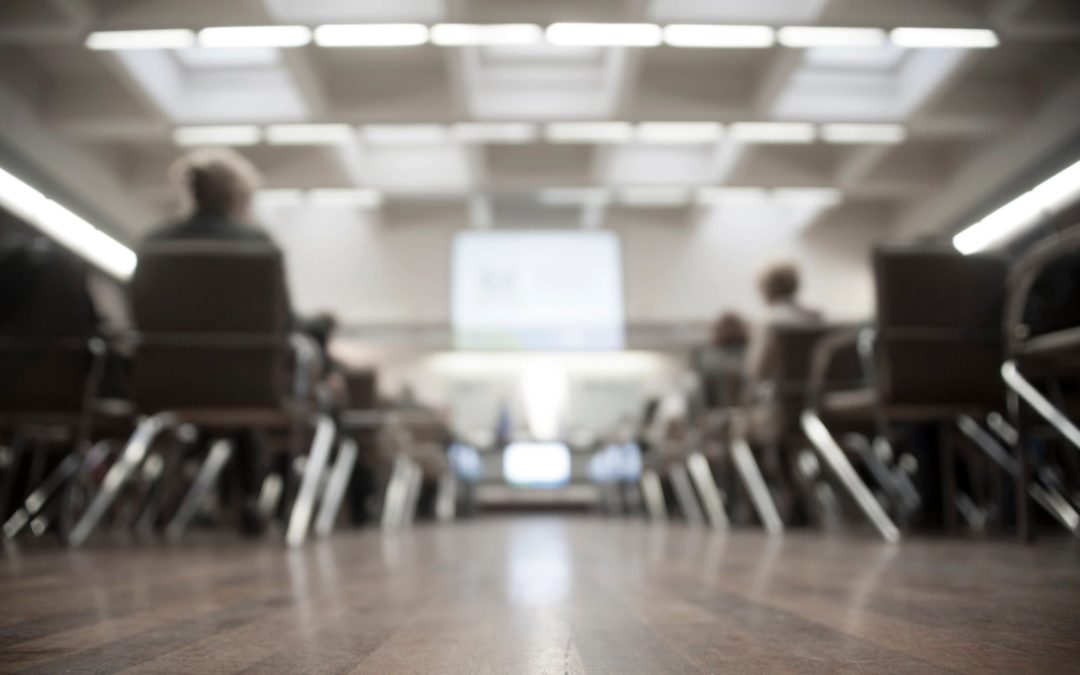By Levent Herguner, Alex Li, and Joe Sauer
On Tuesday, November 13th, the PTAB Bar Association held its inaugural Thought Leader Summit. The Summit featured two sessions on recent developments in the patent litigation field, as well as a keynote address from Acting Deputy Chief Administrative Patent Judge Jacqueline Wright Bonilla.
The Summit’s first session was “Complex PTAB Issues Seen from the PTAB Bench.” It featured a panel of three Administrative Patent Judges: Trevor Jefferson, Grace Obermann and Robert Weinschenk. Practitioners Naveen Modi and Steven Baughman, who moderated the panel, began by asking the judges how the Supreme Court’s holding in SAS Institute, Inc. v. Iancu, 138 S. Ct. 1348 (2018) impacted PTAB litigations. The judges felt the procedural issues following the case were resolved, and expect post-SAS Decisions to Institute to be more detailed. Judge Obermann felt the holding’s impact was moderate because the PTAB was prepared accordingly. Judge Weinschenk thanked practitioners for making the transition period easier and working together to address any lingering issues. The next question was on adding new arguments in evidence. The judges stressed that the Petitioner’s Reply is not an opportunity to voice a new theory of unpatentability, but admitted there is a blurry line between “a new argument” and “explaining a previous argument.” Judge Obermann added that advancing new invalidity theories late in proceedings creates fairness concerns for patent owners. Judge Jefferson highlighted that judges will listen to parties as long as they follow PTAB guidelines, which he believes are clear.
The judges then discussed changes to claim construction. They downplayed the practical significance of moving from the “broadest reasonable interpretation” standard to the standard in Phillips v. AWH Corp., 415 F.3d 1303 (Fed. Cir. 2005). All judges echoed the value in consistency throughout the forums for patent litigation, noting that practitioners should inform the PTAB of claim construction decisions in relevant proceedings. They added that it is helpful when parties highlight critical terms for claim construction during the pre-trial conference. The judges later discussed discovery issues. Judge Weinschenk encouraged practitioners to meet and confer before requesting additional discovery because they are in a better position to estimate the scope of discovery. He believes this practice will discourage unreasonable or overly burdensome searches.
In parting, each judge provided practice tips for practitioners. Judge Obermann encouraged consistent communication between parties. Judge Weinschenk shared that it has become increasingly common for multiple associates to attend oral hearings together, and that APJs appreciate the increased specialization and efficiency this setup enables. Judge Jefferson encouraged practitioners to make their citations easy to read, including pinpoint citations to pages supporting their arguments, as judges make an effort to check every source.
In the Summit’s keynote address, Acting Deputy Chief Administrative Patent Judge Bonilla revealed that the PTAB had seen positive results following the notice of proposed rulemaking, 83 Fed. Reg. 21221, which adopted the Phillips standard for claim construction. She noted that she is excited to see the district court approach replace the broadest reasonable interpretation standard. Judge Bonilla added that the PTAB will consider prior determinations of claim construction as long as they are timely made of record, therefore practitioners should immediately let the board know of any developments. She then highlighted the PTAB’s proposed Motion to Amend pilot program. She reiterated the Patent Office’s request for comments and encouraged practitioner participation. Finally, Judge Bonilla discussed the PTAB’s recent transparency efforts through revisions to its standard operating procedures. She stated that the PTAB will now explain its paneling process for different cases. The PTAB is also establishing a Precedential Opinion Panel (“POP”) to determine whether previous board decisions are precedential or informative. Judge Bonilla stated POP will rehear matters of “exceptional importance” in pending cases, and parties facing POP proceedings will be notified in advance.
The Summit’s second session was “Thought Leaders’ Exchange of Ideas.” This session featured interactive table discussions with Administrative Patent Judges. The topics discussed included real parties in interest and privies; public availability of prior art; objective indicia of nonobviousness; strategy and practical changes post-SAS and under the revised Trial Practice Guide; changes to the claim construction standard in post-grant proceedings; and section 112 issues. The Summit concluded with a networking event following the second session.
Latest posts by Joe Sauer (see all)
- PTAB Allows Supplemental Information Request To Fly - April 13, 2022
- PTAB Denies IPR Institutions Without Patent Owner Rebuttal Evidence - November 15, 2021
- Government to Request Arthrex Rehearing; Rush for Remands Slowed - November 20, 2019

